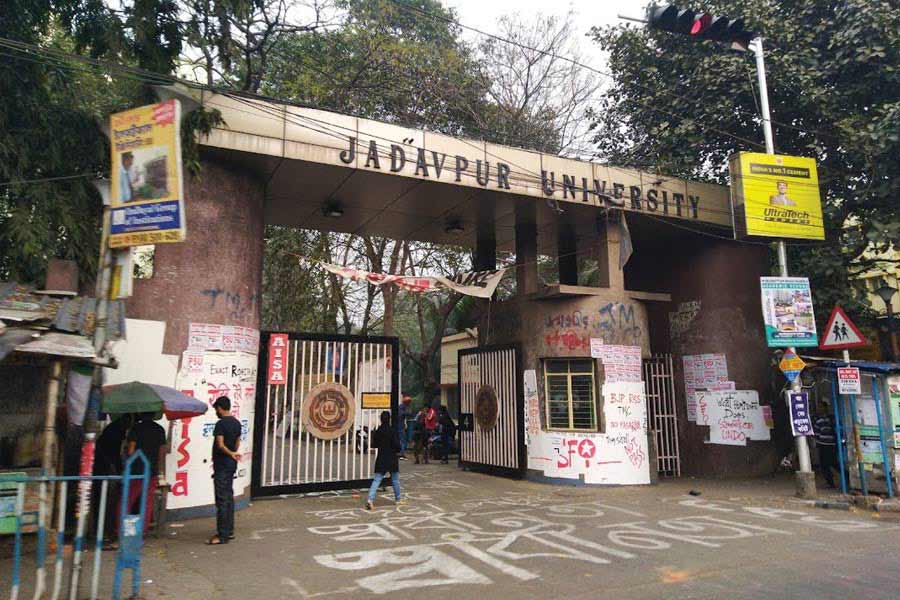Jadavpur University has decided to set up an anti-ragging monitoring cell, to be headed by a teacher at JU, in compliance with a 2009 UGC regulation on curbing the menace of ragging.
The executive council, JU’s highest decision-making body, authorised the vice-chancellor at a recent meeting to constitute the cell. Officials, however, said it was yet to be decided when the cell would be set up.
A four-member team of UGC had criticised the university for not having an anti-ragging cell. The team had in September last year visited JU to take stock of the anti-ragging mechanism, following the death of a first-year undergraduate student who had allegedly been ragged at the main hostel of the university.
The council also decided to appoint teachers as wardens of the hostels, following a prod from the UGC. The wardens will be paid an allowance of Rs 6,000 a month.
The UGC had in January written to JU that teachers be given the responsibility of administering hostels and paid a proper remuneration for the job. The poorly paid contractual hostel superintendents, the regulatory body thinks, “are not capable of preventing instances
of ragging”.
The minutes of the executive council meeting, which Metro has gone through, says the council has “resolved that the Vice-Chancellor be authorized to constitute an Anti-Ragging Monitoring Cell with one of the Teachers as Director of the Cell as per the UGC Regulation on Curbing the Menace of Ragging in Higher Educational Institutions – 2009”.
The 2009 UGC regulation on curbing the menace of ragging says: “If the institute is an affiliating university, it shall have a Monitoring Cell on Ragging to coordinate with the institutions affiliated to it by calling for reports from the heads of such institutions regarding the activities of the anti-ragging committees, squads and mentoring cells....”
A JU official said: “The UGC team that visited the university in September told us that unitary universities
like JU must have the monitoring cell, too.”
JU had on August 12 last year, two days after the death of the first-year student, decided to shift all undergraduate first-year students to a hostel block where seniors would not be allowed. The decision was taken to ensure that the freshers were not
ragged.
In October last year, JU had informed the UGC that it did not follow the “practice of surprise visit” to hostels by its anti-ragging squad, a lapse that violated Clause 6.3(d) of the UGC Regulation on Curbing the Menace of Ragging in HEIs (higher education institutions), 2009.
The executive council also resolved that the proposal from the dean of students to engage teachers as hostel wardens “is hereby accepted”. The whole-time contractual hostel superintendents will continue to do their jobs.
The council also resolved that teachers living within 5km of the university campus will be considered for the post of warden.
When Metro sought the response of the VC, he said in a text message: “Wait for the next EC meeting which will be held very soon and where minutes of the last meeting will be confirmed.”
When contacted by this newspaper, Jadavpur University registrar Snehamanju Basu said: “The minutes of the resolution have been shared with the council members for their opinion.”











